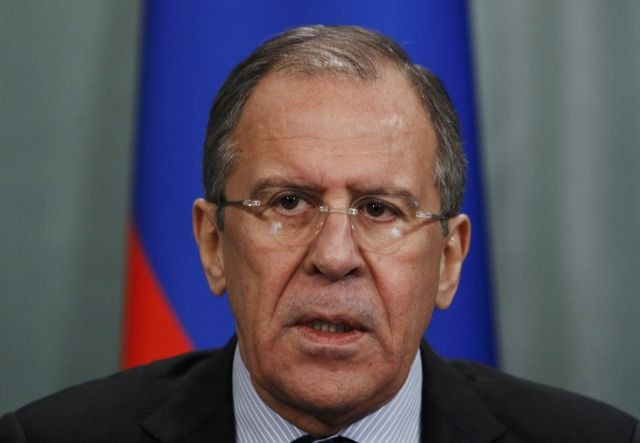Assad Doesn’t Intend To Resign And Russia Won’t Press Him, Says Lavrov

Russian Foreign Minister Sergei Lavrov said Friday that Moscow won’t press Syrian President Bashar Al Assad to stand down, but maintained that a negotiated settlement needs to be reached to end the Syrian civil war.
Speaking to the BBC, Lavrov added that irrespective of Russia’s position regarding the Syrian conflict, Assad has no intention of resigning.
"I can only say it is not for us to decide who should lead Syria. It is for the Syrians to decide," Lavrov told the BBC.
When asked if there was any chance of Russia urging President Assad to stand aside, he said: "Absolutely not. You know that we are not in the regime-change game. We are against interference in domestic conflicts.”
In an interview published Mar. 3 by the British newspaper the Sunday Times, Assad had expressed willingness to negotiate with the country’s opposition but refused to consider resigning. Assad’s statement followed that of Syrian Foreign Minister Walid Al-Muallem who said in Moscow Feb. 25 that Damascus was ready for dialogue with everyone who wants it, even with those who have weapons in their hands “because we believe that reforms will not come through bloodshed but only through dialogue.”
Assad had also accused the U.K. Prime Minister David Cameron’s government of trying to supply arms to "terrorists" in his country by pushing for the ending of an EU arms embargo. However, at a meeting in Brussels Feb. 18, EU foreign ministers had decided to allow only "non-lethal" aid and "technical assistance" to flow to the Syria's opposition.
Lavrov is due to visit London next week for talks with the U.K. Foreign Secretary William Hague.
Speaking of the British and Russian positions on the Syrian crisis Lavrov said: "I don't think we are far apart as far as the eventual goal is concerned. We both want Syria to be united, to be democratic. We both want the Syrian people to choose freely the way they would like to run their country.
"That has been the Russian position... since the crisis started," he added.
On Wednesday, Hague announced the British government’s decision to provide armored vehicles and body armor to the Syrian opposition “to help save lives.”
He announced a £13 million ($19 million) package of logistical and humanitarian support for areas under opposition control which he said was made possible after recent changes to the terms of the EU's arms embargo.
Hague added that “no Western government is advocating military intervention of Western nations into the conflict in Syria. The discussion is entirely focused on the degree of assistance that can and should be delivered to the opposition.”
On Feb. 28, U.S. Secretary of State John Kerry announced a $60 million aid package to the Syrian opposition, which would include food rations and medical supplies, reversing the U.S. policy on the Syrian issue. The aid, limited to “non-lethal” supplies, brought the total U.S. assistance package to the civilian opposition to approximately $115 million.
© Copyright IBTimes 2024. All rights reserved.












